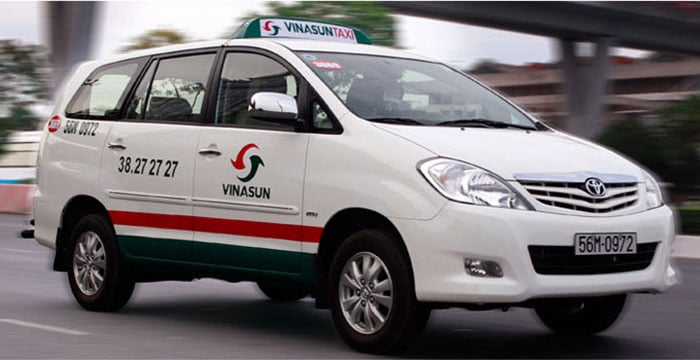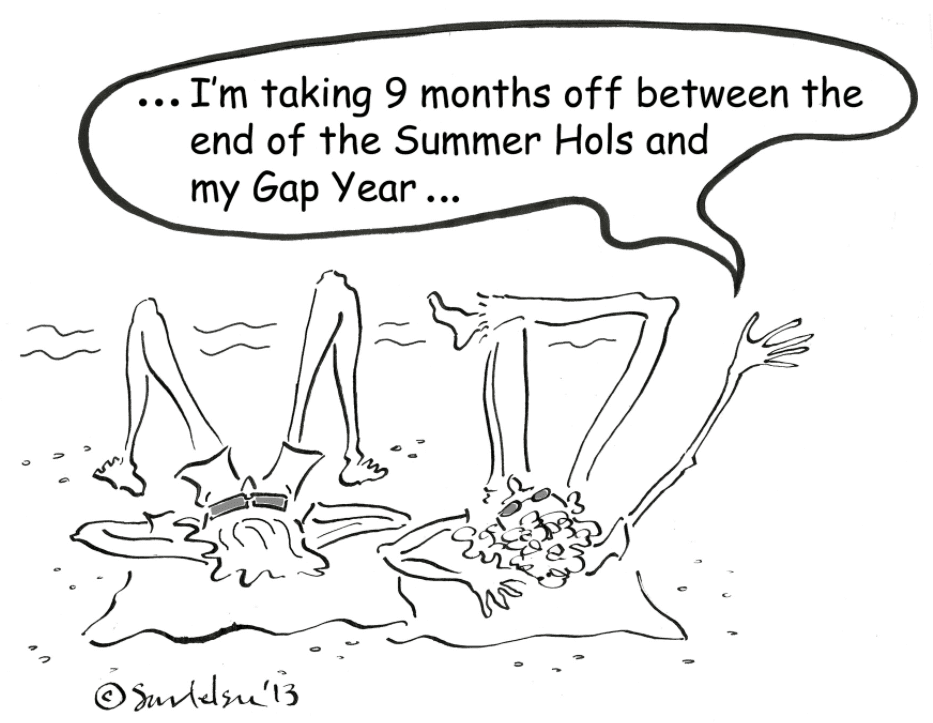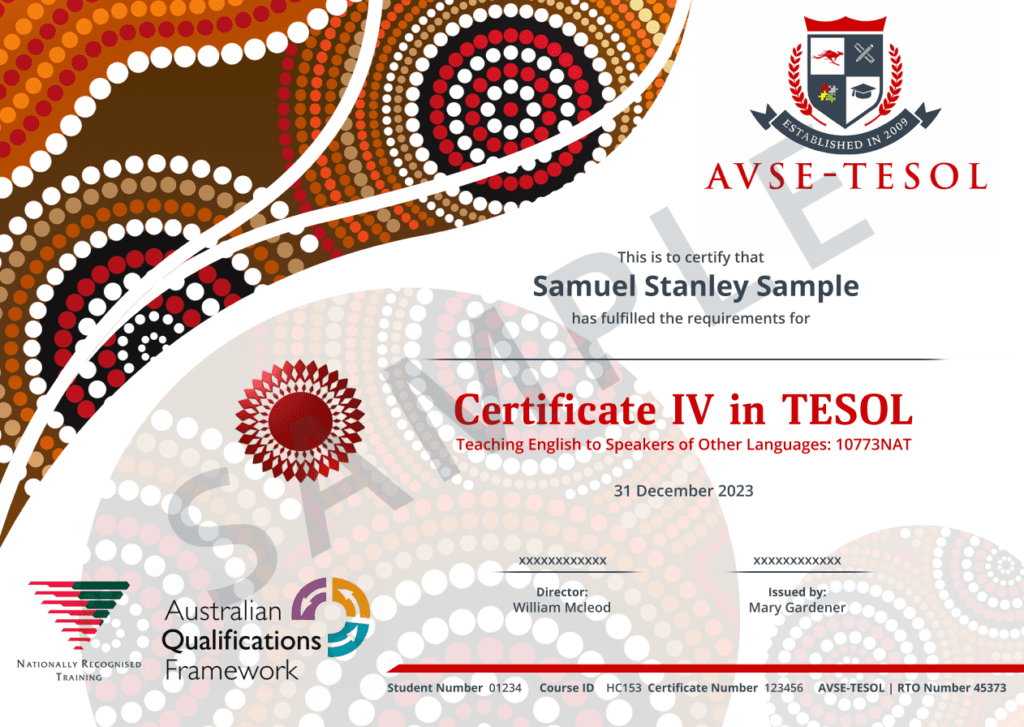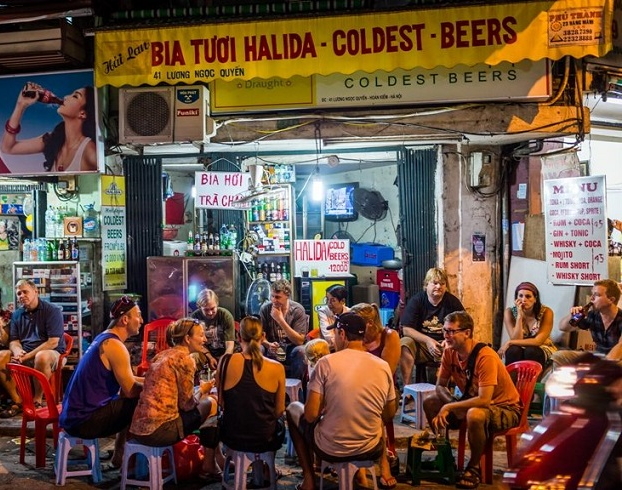
TEFL Course in Ho Chi Minh City
Quality TEFL with real job support…
Australian Vocational Skills and Education (AVSE) offers an Australian Government accredited and internationally recognised ‘in-class’ TEFL course in Ho Chi Minh City, Vietnam. Holding quality TEFL certification is a prerequisite to teach English in Vietnam and many other countries. While this article focuses on AVSE’s teacher training programme in Ho Chi Minh City, AVSE offers the same in-class, Australian Government accredited TEFL course in Hanoi and Phnom Penh – and online, if you aren’t able to travel to Vietnam or Cambodia.
If you’ve decided to teach English in Ho Chi Minh City, it makes sense to complete your TEFL training in Ho Chi Minh City, your preferred teaching location. It also makes sense to complete your TEFL course at AVSE.

Why Ho Chi Minh City?
By doing your TEFL training in the city where you plan to teach, you’ll be: 1. more accessible to potential employers (schools); 2. in a familiar environment when you land that all-important first teaching job; 3. able to physically check out medium to long term accommodation options, and 4. surrounded by friends from your TEFL course. In addition, you’ll be able to catch up with the trainers and staff at AVSE – folks that you got to know well during your TEFL course in Ho Chi Minh City – for guidance and support if the need arises. There are plenty of other reasons why it makes sense to do your TEFL training in Ho Chi Minh City, if that’s where you plan to teach, including:
- an abundance of job opportunities
- diversity of teaching work
- gateway to Vietnam
- commercial hub
- access to services
- nightlife x 24/7
- proximity to popular tourist destinations, and
- more ‘Bia Hoi’ joints than you’ll have time to visit in a single lifetime
Why AVSE?
By any measure, AVSE is the largest TEFL course provider in Vietnam (and Cambodia). They’ve been on the ground in Southeast Asia for more than a decade. Most importantly, AVSE’s TEFL course in Ho Chi Minh City is accredited by the Australian Government. As someone who aspires to be a professional educator, accreditation is not an area where you can cut corners.

TEFL at AVSE in Ho Chi Minh City is suitable for professionally-minded people over 18 years of age – any country, any background. The TEFL programme at AVSE is also ideal for practising teachers who wish to build upon their skill set or obtain high-level certification as an English as a Second Language (ESL) educator – certification accredited by the Australian Government.
The key goals of AVSE’s TEFL programme are twofold: 1. to uphold professional teaching standards by offering certification that’s government accredited and therefore truly carries international recognition, and 2. to equip aspiring ESL teachers with the skills and knowledge they need to excel in their chosen profession. It’s all about providing the certification and hands-on experience central to securing a well-paid English teaching job.
Practical dimension
Unashamedly, the TEFL programme at AVSE focuses on the practical dimension of teaching English as a second language in developing countries. Sure, theory is essential, and there’s plenty covered during the course, but knowing how to create an environment where students are ‘chomping at the bit’ to study English is equally important. TEFL training at AVSE in Ho Chi Minh City involves a time commitment of 150 hours over four weeks. Trainees need to complete a minimum of 14 hours of practical experience (critically assessed) with ‘real’ Vietnamese English language students engaged in ongoing classes.
‘What about the ‘learning environment’ at AVSE in Ho Chi Minh City?’, I hear you ask. ‘What about the trainers?’ ‘Will I secure a teaching job once I’ve completed my TEFL course in Ho Chi Minh City?’ These are all fair questions that warrant ‘upfront’, plain-English responses.
Learning environment
AVSE’s TEFL course in Ho Chi Minh City is co-located with a fully functioning English Language School. AVSE’s strategic location in Ho Chi Minh City means that TEFL students can complete their teacher training in a real school environment from day one of their study programme. You’ll find all the modern features you’d expect from a quality vocational training institution with a genuine Australian connection – the latest IT, superior teaching resources, air conditioning, designated areas for ‘down-time’ and suchlike. The AVSE building in Ho Chi Minh City is subject to the same occupational health, fire safety and disability access considerations that apply to schools and training centres in Australia, despite being in Vietnam.
Trainers
While teaching experience is helpful, not all experienced teachers possess the qualifications, skills, and knowledge to be a vocational trainer. Teaching and training are very different activities. To illustrate this point, I’d like you to think about ‘sex’. You can teach people about sex – pregnancy, health risks and suchlike or train people…, I think you get my point. Students who are completing a TEFL course have every right to believe that the person who is taking their course is a certified Trainer in a vocational context. All TEFL Trainers at AVSE possess specialist Vocational Training qualifications and industry experience, mandated by the Australian Government.
Teaching job
Employers (schools) in Ho Chi Minh City have a distinct preference for hiring new teachers who are on the ground and ready to start immediately. By doing your TEFL training ‘in-country’ – and ‘in-city’ at AVSE, you’ll be: 1. ‘Johnny on the spot’ when it comes to employment; and 2. part of the AVSE ‘family’. When point 1 is coupled with point 2, there’s every reason to believe that you’ll be in a decent teaching job in Ho Chi Minh City – that pays market rates, provides for a safe and secure work environment, requires sensible work hours and is with a reputable school – within a matter of days of completing your TEFL course. On top of points 1 and 2, TEFL training at AVSE comes with ‘hands-on’ job help. It’s a commitment that AVSE takes very seriously. The ‘proof is in the pudding’.
Summary
In this article, we’ve touched on selected matters about the Australian Government accredited TEFL course at AVSE in Ho Chi Minh City. Eligibility, reasons to enrol, course content, learning environment, trainers and job prospects have all been canvassed. If you’d like more information about the Australian Government accredited TEFL programme at AVSE in Ho Chi Minh City, reach out to the friendly folks at AVSE today.
About the writer: Peter Goudge has been living and working in Vietnam since 2006. He is the Managing Director and owner of Australian Vocational Skills and Education (AVSE). AVSE has TEFL training schools in Ho Chi Minh City, Hanoi, and Phnom Penh. Check out the AVSE website: www.avse.edu.vn
Feedback from former students is invaluable
This morning, I did some counting and reading to better understand what motivates TEFL course customers. I was surprised to learn that 3,032 students have completed the TEFL course in Ho Chi Minh City at AVSE over the past decade, and 1,007 students have completed the TEFL course at AVSE’s two other locations, Hanoi, and Phnom Penh. While number crunching, I also took the time to re-read many of the ‘end of course’ feedback forms that we’ve kept in safe storage. Some dated back to 2010.

Numbers
While I’m not a mathematician, feedback from 3,032 TEFL students in Ho Chi Minh City and 1,007 students in Hanoi and Cambodia (combined), is a hefty statistical sample. True, not every student completed a feedback form, and some students didn’t answer every question. Let’s say that 50% of TEFL students fully completed the feedback form – then round the number down – and the total is 2,000. It’s still a good statistical sample, at least from a layperson’s perspective. What was learnt from this ‘good statistical sample’ of feedback forms? In my view, there were three lessons.
Firstly, it seems that I was a scallywag in my teaching days. If you’re a former TEFL student of mine who is reading this blog post, please accept my belated apologies. Yes, my teacher-training style was unconventional. However, I have mellowed with age. I no longer get around with a woman’s wig and a small trumpet.
Secondly, I was taken aback by the similarity of the written responses to the following question: “Why did you enrol in the Australian Government accredited TEFL course in Ho Chi Minh City?” Almost to a person, students wrote something akin to: ‘learn how to teach English as a second language’, ‘get a job’. In short, TEFL trainees were telling AVSE that the TEFL course is a ‘means to an end’.

Before revealing my third point, allow me to provide some perspective.
Between 2009 and 2012, a typical 4-week TEFL course in Ho Chi Minh City at AVSE would attract eight to ten students. In more recent times, AVSE has typically offered two TEFL courses a month, running concurrently in Ho Chi Minh City, with an average of 16 students in each class. While AVSE’s TEFL numbers have grown exponentially in Ho Chi Minh City over the years, you could set your clock by the 14 to 16 students enrolled each month in both Hanoi and Phnom Penh. Succinctly, one site has experienced substantial growth, our other two sites consistently cater for a similar number of students, but all three sites offer precisely the same product. Intriguing!
While almost to a person, trainees were telling AVSE in their feedback form that they see the TEFL course as a means to an end – learn a bit and get a job (see above) – the responses related to the choice of destination (city) were strikingly different. It seems that there are ‘pull factors’ at play – ‘word of mouth’, location and climate – that heavily favour Ho Chi Minh City as a TEFL destination over Hanoi and Phnom Penh – my belated point three. This idea is evidenced by AVSE’s own numbers – in Ho Chi Minh City, 3032 students with huge growth, in Hanoi and Penh Penh (1007 students combined) with numbers that are regular as clockwork. Let’s have a closer look at these pull factors.
‘Word of mouth’
One way or another, every foreigner who joins a TEFL course in Ho Chi Minh City first heard about the opportunity to do a short course and get a teaching job by ‘word of mouth’, either literally, or via the internet. Word of mouth, in a literal sense, would typically come from a family member, a friend or an acquaintance. In the context of the internet, ‘word of mouth’ would come from a Google search, social media, online reviews, chatting and suchlike.

Ho Chi Minh City is ‘English teaching central’ in Vietnam. There are more schools, more students, more teaching jobs, more teaching vacancies and more teaching-related social media platforms in Ho Chi Minh City compared to Hanoi and Phnom Penh. With more foreigners teaching English in Ho Chi Minh City than in any other city in Vietnam or Cambodia, it follows that there will be more people spreading the good news. Over the past two decades, we’ve seen a classic ‘snowball effect’ playing out with ‘word of mouth’ related to teaching English in Ho Chi Minh City. We haven’t seen the same in Hanoi and Phnom Penh – it may well be a case of ‘watch this space’.
Location
With a population of just under 9 million people, Ho Chi Minh City is Vietnam’s commercial hub and international gateway. Ho Chi Minh City is conveniently located in the south of Vietnam. You can travel by bus from the central business district to Phnom Penh, the capital city of Cambodia, within six hours. Likewise, you can fly from Ho Chi Minh City to Singapore, Malaysia, the Philippines, Thailand, Hong Kong, or Indonesia within three hours.
In addition to being Vietnam’s international gateway, Ho Chi Minh City is the transport hub for domestic travel in the south of the country. Tourist destinations in the south of Vietnam, including Vung Tau, the Mekong Delta, Phan Thiet, Muine and even Dalat, are a relatively short bus journey away. You can even fly from Ho Chi Minh City to Phu Quoc or Danang within a couple of hours; both are hugely popular with domestic and international tourists.
The ‘knowledge’ aspect of a TEFL course in Ho Chi Minh City is undoubtedly important, but the overall ‘TEFL experience’ is multi-faceted. Spending a month with like-minded souls from the 4-corners of the world, finding your way around Ho Chi Minh City, taking a bus to an exotic location for the weekend or flying to a neighbouring country for a short trip are all part of a brilliant TEFL experience – and a ‘pull factor’ that clearly favours Ho Chi Minh City.
Climate
Initially, it might seem counter-intuitive to list climate as a pull factor for doing a TEFL course in Ho Chi Minh City over Hanoi and Phnom Penh. However, when you scratch a bit below the surface, it’s not counter-intuitive at all; it makes perfect sense.

Ho Chi Minh City has two seasons, the dry season and the wet season. The dry season is characterised by oppressive heat and very little rain. Oppressive heat, high humidity and a daily downpour are the key features of the wet season. In contrast, Hanoi has the classic four seasons and extreme weather events on occasions that are not prevalent in Ho Chi Minh City. When it’s hot in Hanoi, it’s very hot. When it’s cold, it’s very cold. Phnom Penh and Ho Chi Minh City are only 203 kilometres apart, and the two cities have similar latitude and longitude lines. These factors dictate that Phnom Penh and Ho Chi Minh City have a similar weather pattern, although Phnom Penh does present an array of challenging variables. When you add dust, dirt, abject poverty, and poor infrastructure – all commonplace in Phnom Penh – to oppressive heat, high humidity and severe flooding, it’s pretty easy to understand why some folks would choose to stay away.
The weather in Ho Chi Minh City may be hot, but it’s a known quantity. So, you would have ‘built it into the equation’ before leaving home. Moreover, there’s a lot of upsides to hot, predictable weather, 24/7 – socialising with friends late into the evening, getting around in shorts and a t-shirt, flip flops rather than lace-up shoes, pursuing outdoor hobbies, trips to the beach and suchlike. Conversely, the weather in Hanoi and Phnom Penh is far less predictable and can present unwanted challenges.
Conclusion
In this blog post, from a layperson’s perspective, I’ve analysed enrolment numbers and feedback from students who completed AVSE’s TEFL course in Ho Chi Minh City, Hanoi, and Phnom Penh over a many of years. The analysis suggests that: 1. most people do the TEFL course at AVSE because they want to know how to teach English as a second language – and get a teaching job; and 2. pull-factors – ‘word of mouth’, location and climate – have driven exponential growth in AVSE’s TEFL programme in Ho Chi Minh City, while student numbers in Hanoi and Phnom have remained relatively stable.
Turning your mind to what motivates paying customers is undoubtedly a good thing.
About the blogger: Peter Goudge is the founder and Managing Director of AVSE-TESOL in Ho Chi Minh City, Hanoi and Phnom Penh. Originally from Melbourne, Australia, Peter now calls Ho Chi Minh City home. Check out the AVSE-TESOL website: www.avse.edu.vn
Do some ‘taxi homework’ before arriving in Vietnam…
I can say, with my hand on heart, that I’ve heard a taxi-tale from every continent, except Antarctica. I’ve heard some horror stories from ‘globetrotters’ of all ages and backgrounds while going about my business running a TEFL course in Ho Chi Minh City, Vietnam. Equally, I’ve had my own undesirable experiences in several countries, including my native Australia.
Taxi tales
Some taxi tales are good news stories, the birth of a baby on the back seat, for example, but most are about situations that travellers dread. We’ve all heard stories, or experienced them first-hand, about getting ripped off, taken to the address, arguments about paying a tip (or surcharge), lecherous cabbies, lead-foot drivers, tailgating, jackrabbit starts, clutch dumps, modified meters, and road rage; the list goes on.

This taxi-related blog post comes with four tips based on ‘coalface’ experience. It’s directed at the 400+ students (annually) who travel to Vietnam from countries near and far to complete the Australian Government accredited TEFL course in Ho Chi Minh City at AVSE. Having said this, three of the four ‘taxi tips’ are relevant to everyone who visits Ho Chi Minh City.
Tip One:
Avoid privately-owned taxis at Tan Son Nhat International Airport in Ho Chi Minh City. Why? There’s a high chance your experience will result in displeasure due to aggressive behaviour, an argument about the agreed price, taken to the wrong address and suchlike.
Let’s assume you’re travelling to Vietnam to join the TEFL course in Ho Chi Minh City at AVSE, with the view of teaching English after the 4-week programme concludes. Almost certainly, your first ‘taxi experience’ in Vietnam will be at airport in Ho Chi Minh City immediately after you exit the terminal building. If you choose to travel by taxi from the airport to the AVSE campus or somewhere else, you’ll essentially have two choices – a ‘taxi’ that’s privately owned or a ‘run-of-the-mill’ taxi that’s operated by one of the branded taxi companies.

Distinguishing between the two taxi options can be tricky for a rookie, but there are tell-tale signs. The privately-owned taxis tend to come with aggressive touts, impeccably dressed drivers, vehicles parked in far-off places and zero branding. The importance of branding can’t be over-emphasised; it’s central to personal security. It’s much easier to track down a recalcitrant taxi driver when he (or she) works for a known cab company as distinct from tracking down a person who drives a ‘white Toyota’ or similar like 50% of other drivers on the road. How the service fee is calculated is another telling difference between the two taxi options. Private taxi services tend to set an arbitrary price that’s well above the market rate in the hope that you won’t know any better. People fall for it! The regular taxi services in Ho Chi Minh City charge according to a meter reading. You’ll see the meter clicking over as you travel from Point A to Point B. If the taxi you’re thinking of using doesn’t have a working meter – walk away, it’s that’s simple.
Tip Two:
Use Vinasun taxis in Ho Chi Minh City for a trouble-free experience.
If you choose to heed Tip One, you’ll find an ‘everyday’ branded taxi at the airport’s designated taxi rank – turn left when you leave the airport building and walk to the end of the concourse. There are plenty of signs to point you in the right direction. On the way to the designated taxi rank, there’s a good chance that private taxi touts will harass you (see Tip One); it’s best not to engage with them, just keep walking. The taxi touts at Tan Son Nhat Airport are very shrewd. If you engage one of them, it’s not easy to disengage.
Okay, you’ve found the public taxi rank at Tan Son Nhat International Airport. One of the first things you’ll notice is that there are six or so branded taxi companies that want your business. Personally, I use Vinasun taxis in Ho Chi Minh City, or I walk. Why Vinasun? Here’s my response.
From my experience, Vinasun taxis in Ho Chi Minh City are clean, reliable, 100% metered, have decent air-conditioning, you’ll see them everywhere, and the drivers mostly know their way around the city. Vinasun taxi drivers are purposely trained to: 1. be polite to customers; 2. deal with language issues in a professional manner; 3. load and unload baggage; 4. check if anything has been left in the taxi before the passenger disappears into the Ho Chi Minh City crowds, and 5. give the correct change.
There’s a quirky feature about Vinasun that you’ll notice the first time you take a cab ride with them. When a foreigner sits in a Vinasun taxi, seemingly by divine intervention, a recorded message in beautiful English plays, expressing gratitude for choosing Vinasun and wishing the person well during their time in Vietnam. I have heard a few variations of the same message over the years. It’s a nice touch.
In the 10+ years that I’ve been running a TEFL course in Ho Chi Minh City at AVSE, we’ve literally had thousands of students from the four corners of the world go through our programme. Almost to a person, I have recommended Vinasun taxis. I haven’t received a single complaint. Conversely, I’ve heard about mishaps with some of the other taxi companies in Ho Chi Minh City.
Tip Three:
Don’t get into any taxi that doesn’t feel right – go with your gut feeling.
Put simply, what I want from a taxi service is to get from point A to point B for a reasonable price, without any surprises. I think most commuters want the same. Certainly, that’s the message I hear from work colleagues, friends, neighbours, students doing the TEFL course in Ho Chi Minh City at my school and from other folks in my orbit. Before you get into the back seat of any taxi – including a Vinasun cab – make sure it feels right. If it doesn’t feel right, there’s a good chance it’s not right, so let it go. There are plenty of other taxis in Ho Chi Minh City that will feel right. Classic tell-tale signs that a planned taxi journey may leave you disillusioned, in tears or worse, include:
- impatient driver
- driver who appears not to listen to your instructions
- driver who doesn’t understand where you want to go
- dirty exterior or interior
- unbranded ‘taxi’
- no meter
- meter present, but the driver wants to negotiate a set price
- driver’s body language
- inappropriate conversation
- driver and a passenger in the cab when you are collected
Tip Four:
If you’re enrolled in the TEFL course in Ho Chi Minh City at AVSE, lock in a plan before your arrival date to be collected from the airport by an AVSE staff member (fee involved).
If you don’t want to be harassed by taxi touts after a long flight or find your way to the public taxi rank at Tan Son Nhat International Airport, arranging for an AVSE staff member to collect you on arrival makes sense. The airport collection service comes with a fee of US $30.00, which covers the return journey for the staff member, your one-way journey to the AVSE campus and up to three hours waiting time in the event your flight is delayed. By any measure, it’s a bargain – and it’s super convenient. You can book the airport collection service by sending an email to the coordinator of your TEFL course in Ho Chi Minh City at AVSE.
Summary
In this blog post, I’ve noted that: taxi-touts at Tan Son Nhat International Airport in Ho Chi Minh City should be avoided; Vinasun cabs are my personal favourite; you should pay attention to your ‘gut feeling’ before getting into the back seat of a taxi, Vinasun or otherwise; and last but not least, there’s always the airport collection service offered by AVSE if you can’t be bothered with taxi-related matters on arrival in Vietnam.
The reality is that all of us are only one dodgy taxi ride away from having a horror taxi tale. Do some taxi homework before you arrive in Ho Chi Minh City, and be smart when you’re getting about town. If you follow a few simple ‘rules’ with taxis, there’s a good chance that you’ll be a listener rather than a storyteller when taxi tales are the topic of conversation.
About the writer: Peter Goudge is the owner of Australian Vocational Skills and Education (AVSE) in Vietnam and Cambodia. AVSE has been delivering an Australian Government accredited TEFL course in Ho Chi Minh City and at other locations in Southeast Asia for more than a decade. Check out the AVSE website: www.avse.edu.vn











































Recent Comments